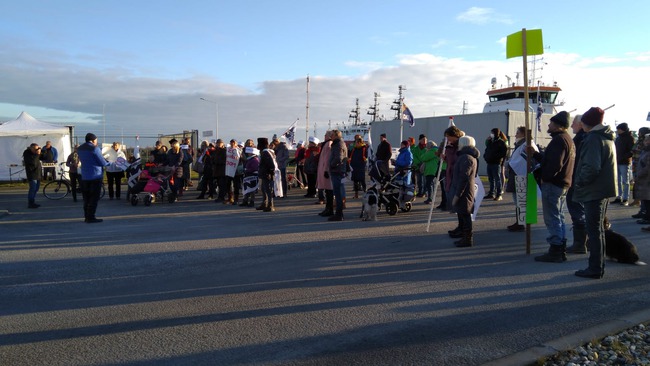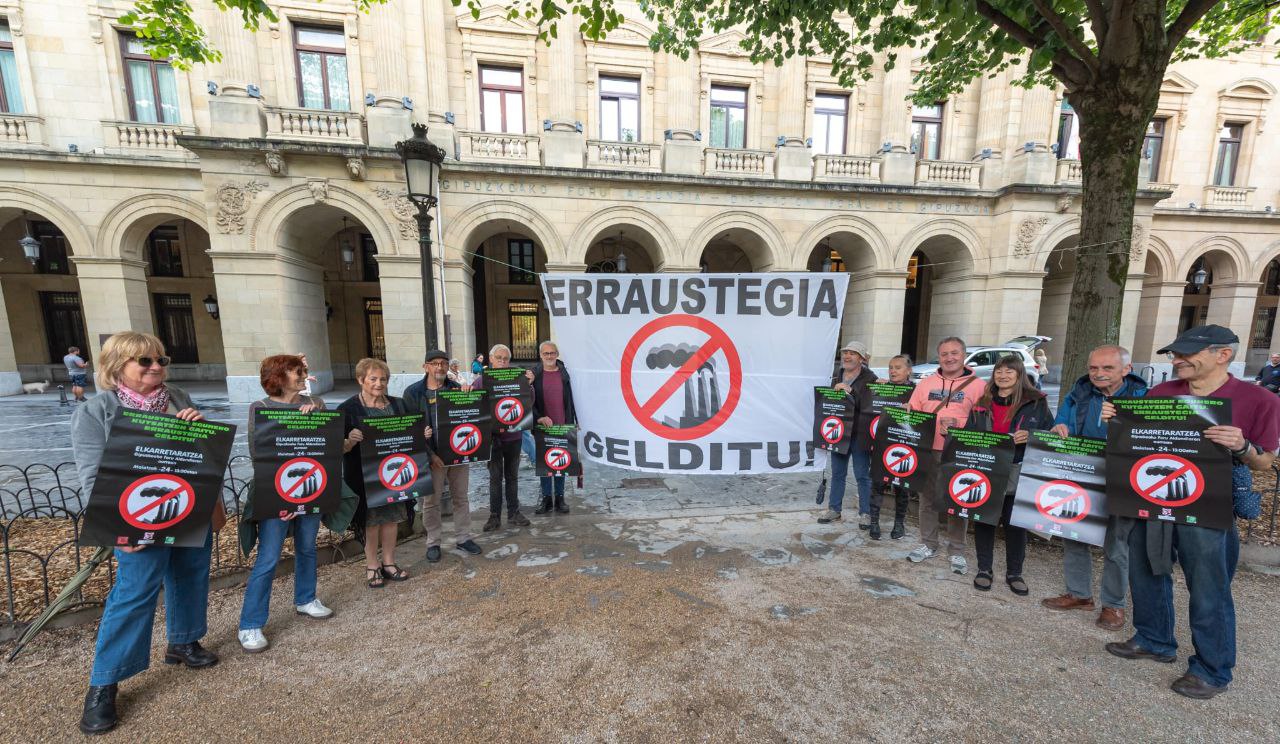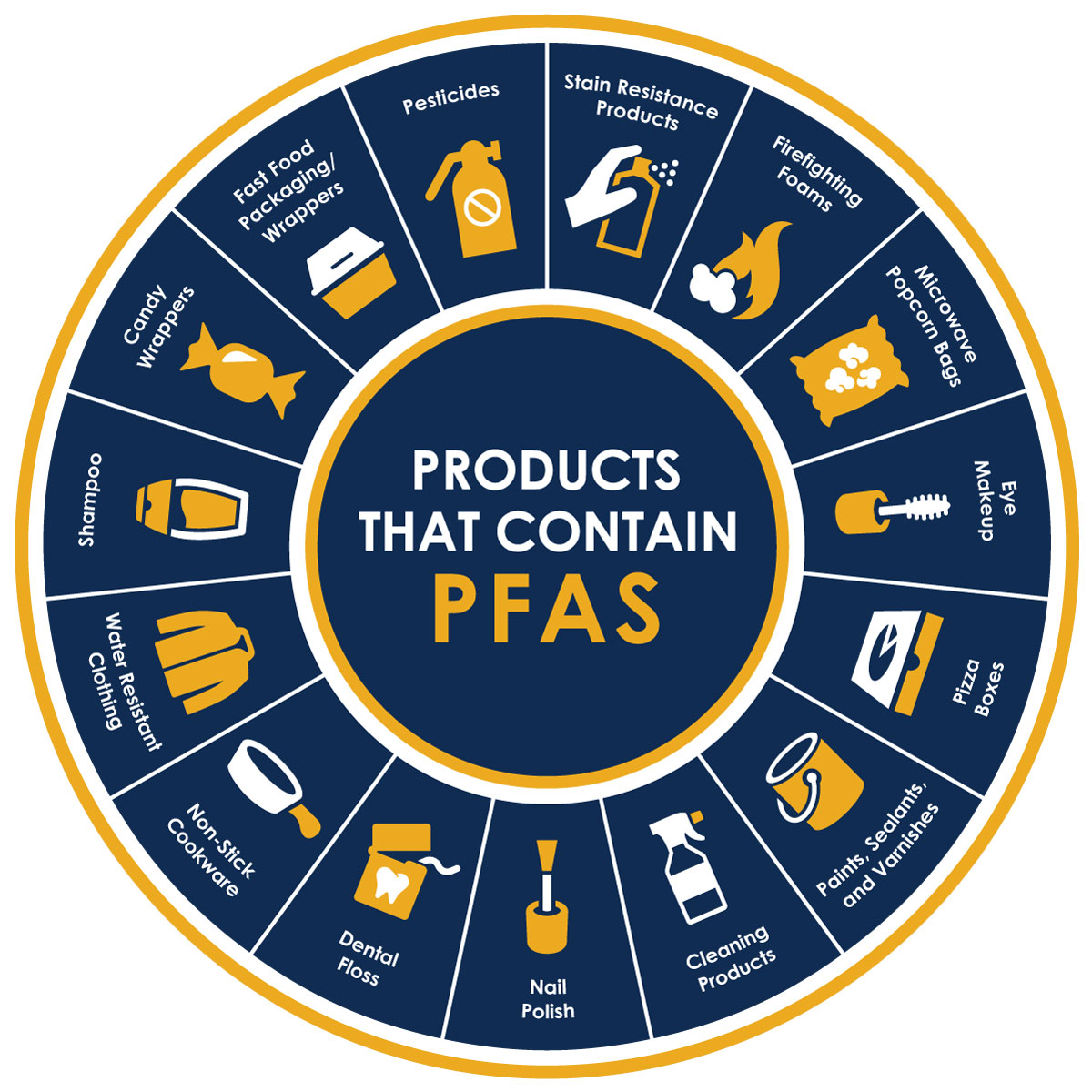Neighbours block entry to the Harlingen incinerator and call for its closure
- On Friday, 14 December, a group of citizens gathered in front of the Omrin incinerator in Harling to request its closure. In the past, the Commonwealth of the Peoples of Friesus, the owner of the incinerator, held an assembly in which the mayors of the villages in the area expressed their concern about the concealment of information by the managers of the incinerator. The incinerator, the most recent one in the Netherlands, has been standing for a week without being able to solve the eleventh technical problem.

The controversy is becoming more and more intense in the vicinity of Harling, the most modern incineration plant in the Netherlands, after being proven (see Dioxinagate: this is how the most recent incinerator in the Netherlands spreads), that the non-polluting furnace officially emits many more pollutants than those that have actually been allowed, such as dioxins, furans and others. As the board of directors of the incinerator was to meet on Friday, a group of neighbors blocked access to the building after eating, demanding its closure. The media Omrop Fryslan has reported the concentration, with chronicles, photos and videos, both in Dutch and in Frisian.
A citizen has disseminated this short video of the protest via Twitter:
— Jannette Van der Ploeg (@JupIkBenEr) December 14, 2018
On the same day the community or public college owning the incineration plant at Onrin met. There, several municipalities in Frisia showed their concern and asked the director to re-implement the online control system of dioxins and furans that the company left without consulting anyone after a year of operation (and when it was shown that contaminants exceeded legal limits). The director did not reply clearly.

The Neet de Afvalov association has explained that the plant’s director, John Vernooij, complained that the requests of the mayors of Frisia are greatly increasing its operation. It has been shown that unforeseen costs will have to be met initially: the need to renew vapours' channelling pipes (due to the oxidation of chemicals before what is believed), to buy in large quantities expensive items such as bicarbonate to control hydroxylic azic, to strengthen fire infrastructures...
In addition, due to the breakdowns in the furnaces, the steam service used by the next salt factory, one of the economic justifications of the Harlingen incinerator, has been repeatedly discontinued. And if this was not a little, some municipalities have begun to take important steps in selective collection (for example, by setting up the DIFTA system, which has implemented among us in Usurbil the non-innate payment system, also called the fair rate), which causes the cost-effectiveness of the incinerator to be called into question, as it involves less generation of trash for the furnaces. Unless it already has too much incineration capacity in the Netherlands.
After all, in the municipalities of Frisia, the economic impact of the closure of the new Harlingen incinerator with the losses of keeping the ovens alive has been hypothesized.
Zero Waste Europe-k (ZWE) Espainia, Txekia eta Lituaniako hiru erraustegiri buruz argitaratu duen ikerketa berri batek egiaztatu du instalazio horien inguruetan kutsadura maila handia dagoela, eta hori arriskutsua litzateke ingurumenerako eta gertu bizi diren pertsonen... [+]
Zumarragan 2023 amaierarako eraiki nahi duten plastikoak tratatzeko plantan pirolisia erabiliko da olioa lortzeko (takoil), eta olio hori plastiko berria eta erregaiak egiteko erabiliko da. "Hondakin solidoak errez erregaia sortzen du, eta Europar Batasunaren beraren... [+]
Bergarako Udalaren webgunean irakur daiteke albistea izenburu honekin: 200 langileko kooperatiba batek Bergaratik joatea erabaki du Valogreene-k bertan ezarri nahi duelako hondakinen planta. "Paper-industriaren hondakinen tratamendurako planta Bergaran ezarri aurretik,... [+]






















